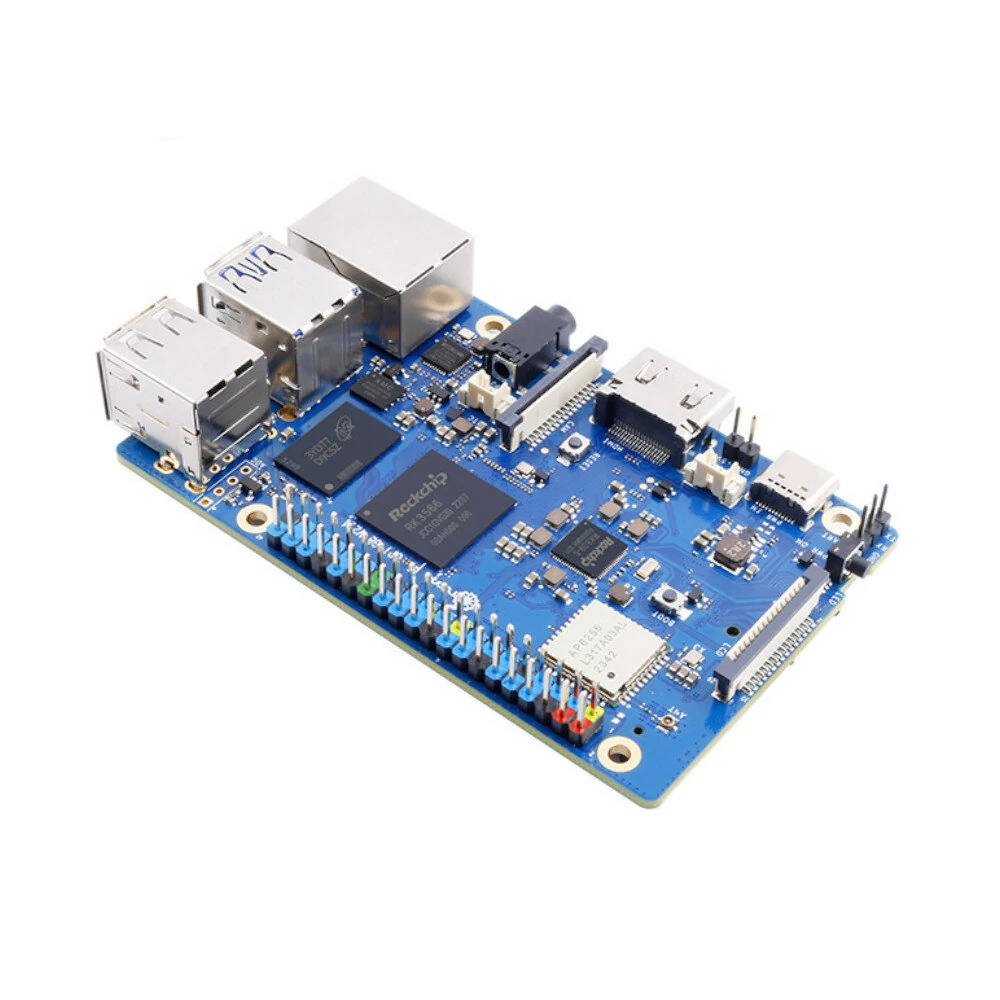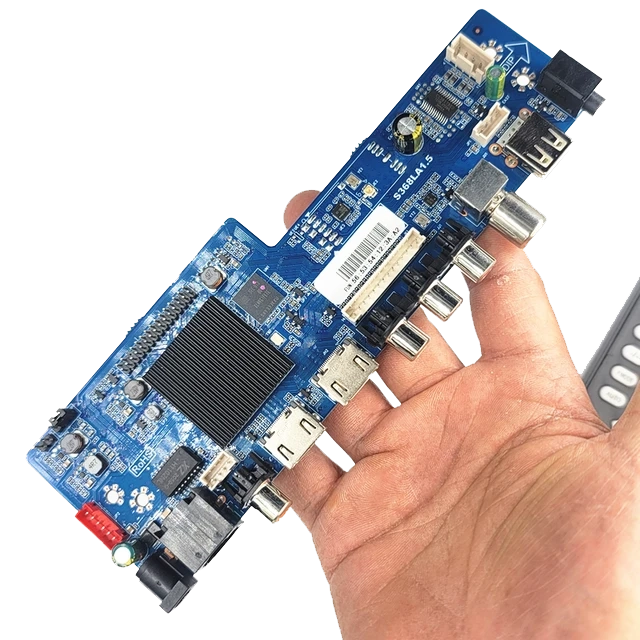
Embark upon the domain of Android app innovation for Single Board Computers. This extensive guide will arm you with the core understanding and hands-on methods to successfully develop your own Android-fueled SBC tasks. From learning the basic principles of Android programming to investigating elaborate world of SBC equipment, this guide will lead you towards a effective creation process.
- Uncover the various of available SBC platforms and their separate capabilities.
- Become adept at essential Android coding instruments, including Android Studio, SDKs, and emulators.
- Comprehend the intricacies of setting up your SBC environment for seamless Android operation.
Study best practices for fabricating robust and responsive Android software tailored for SBC hardware constraints.
Formulating Android Apps for SBC Platforms
Harnessing capabilities of a Single Board Computer (SBC) for Android application building is an increasingly emerging approach. These compact and versatile gadgets provide a cost-effective setting for trial, enabling developers to explore the capabilities of Android without the need for a traditional system. By harnessing the SBC's resources such as its processor, memory, and connectivity options, developers can craft Android applications that range from simple utilities to more complex programs. The capacity to customize the hardware and software environment further amplifies the flexibility of SBCs for Android development, making them a advantageous tool for both practitioners.
Integrating Android Dev Boards into IoT Innovations
For budding creators delving into the world of Internet of Things (IoT), Android dev boards present a versatile platform to bring their ingenious ideas to life. These economical boards, often equipped with feature-rich hardware and intuitive software development kits (SDKs), provide a solid foundation for building a wide range of IoT solutions. From home automation systems to agricultural monitoring solutions, Android dev boards empower teams to develop cutting-edge IoT projects with agility.
- Leveraging the extensive Android ecosystem, developers can utilize a vast library of components specifically designed for IoT platforms. This range of resources allows for streamlined development and supports the creation of refined IoT solutions.
- As well, Android dev boards often feature native connectivity options such as Wi-Fi, Bluetooth, and cellular, facilitating seamless networking with other devices and cloud platforms. This connectivity capability is necessary for enabling real-time data handling and remote observation of IoT platforms.
- Additionally, the shared frameworks of Android dev boards fosters a thriving ecosystem of developers, providing ample support for tackling any challenges encountered during the development process.
Scrutinizing Multimedia Potentials of Android SBCs
The realm of multimedia applications is constantly transforming, pushing the boundaries of what's doable. In this dynamic landscape, Android System-on-Chips (SBCs) have emerged as a effective alternative for developers seeking to formulate innovative and engaging experiences.
Such compact yet fully equipped SBCs contribute a special blend of processing capacity, connectivity, and multimedia capabilities that make them excellent for a comprehensive range of applications.
With respect to high-definition video playback to live audio processing, Android SBCs are geared to handle the expectations of today's multimedia setting.
- Besides, their open-source nature permits developers to adapt hardware and software to meet specific application prerequisites.
- The presented level of elasticity facilitates for developers to challenge the limits of multimedia innovation.
Unleash Android Customization with a Dev Board
A development board including the Raspberry Pi or an Nexus Player delivers a unique opportunity to personalize your Android experience. By getting hands-on with the underlying foundation, you can alter everything from the user interface to selected modules. This level of flexibility allows builders to innovate and build truly custom Android platforms. Whether you're wanting to optimize your device's performance, explore new capabilities, or simply answer your curiosity, a dev board can offer a world of prospects.
- Get acquainted with the fundamentals of Android development
- Build custom ROMs and kernels
- Trial new apps and features
- Integrate your device to supplementary interfaces
Debugging Android on SBCs
When working with Android development on Single Board Computers (SBCs), you might encounter a variety of challenges. These can range from simple configuration errors to complex software bugs. Effective debugging and troubleshooting are crucial for identifying the root cause of these problems and restoring your Android environment to full functionality. Employ the vast resources available online, such as forums and documentation, to gain insights into common issues faced by other developers in similar setups.
Start by carefully reviewing your monitoring data for any error messages or warnings that might provide clues about the problem. Establish a thorough logging strategy within your Android application to capture relevant information during runtime. This can help pinpoint specific areas where errors are occurring. Don't hesitate to explore different configurations and settings to see how they affect the behavior of your system.
- Devote time in understanding the hardware capabilities of your SBC, as limitations in processing power or memory can contribute to Android performance issues.
- Forge a strong understanding of the Android SDK and its tools to effectively debug your applications.
- Stay updated with the latest updates of both Android and your SBC's firmware, as these often include bug fixes and performance improvements.
Tuning SBC Android Platforms
When deploying Android-based system-on-a-chip , Single-Board Computers, maximizing speed is paramount. To achieve this, developers and engineers can leverage a range of techniques. This involves methodically improving software and hardware components to safeguard seamless running. Key areas for advancement include hardware allocation, power consumption, network connectivity, and application responsiveness.
- Concentrating on real-time calculation is indispensable for applications that demand immediate returns.
- Applying lightweight systems can notably reduce memory impact, thereby advancing overall functionality.
Regularly upgrading the Android operating system and applications is significant for addressing security breaches and obtaining efficiency optimizations.
Implementing Android SBC Security Best Practices
Securing your Android technology against threats is paramount. Applying sound security best practices for your Android System-on-a-Chip (SBC) configuration can significantly mitigate risks. Regularly improve your SBC's software to address defects. Introduce robust access protocols to manage user permissions and network access. Conduct systematic security investigations to identify potential concerns and deploy necessary fixes.
- Train your users about common security threats and best practices for protecting their devices.
- Defend sensitive data at rest and in transit using strong encryption.
By adhering to these best practices, you can create a more secure environment for your Android SBC.
Driving Progress with SBC Android Platforms
The world of embedded Electronics (SBCs) provides a compelling platform for developing cutting-edge Android applications. By blending the power of Android with the unique capabilities of SBCs, developers can create high-performance solutions across diverse disciplines. This approach offers extraordinary flexibility and customization options, empowering the development of tailored applications that cater to specific needs. Whether it's for smart home gadgets, SBCs coupled with Android development open up a myriad range of possibilities.
- Capitalizing on the low-power nature of SBCs for resource-constrained environments.
- Constructing Android applications with quick responsiveness for time-sensitive tasks.
- Joining Android's user interface capabilities with custom hardware peripherals for a coherent experience.
The combination of Android and SBCs empowers developers to push the frontiers of innovation, producing transformative applications that reshape various fields.
Dominance of SBCs in Android Projects
The landscape of Android development is rapidly evolving, with Single Board Computers (SBCs) emerging as a prominent force. These compact and versatile instruments offer developers a powerful platform for experimentation, prototyping, and even full-scale application deployment. With their affordability, expandability, and expanding ecosystems, SBCs are poised to redefine the way we build Android applications. Software creators are rapidly embracing this modern paradigm, unlocking a world of possibilities for creating immersive user experiences.
From embedded services to connected devices, SBCs provide the perfect base for a wide range of Android projects. Applying the power of open-source software and hardware, developers can formulate innovative solutions that confront real-world challenges.
Inspirational Android SBC Examples
Android Single Board Computers (SBCs) are flexible little tools that can be used to fabricate a wide range of applications. Assuming you're a beginner, there are plenty of exciting project ideas to explore. One accepted category is residential management, where you can use an Android SBC to manage your electronics. You could also assemble a distinct media center, stream content on a larger screen, or even engage in robotics and software development.
- Numerous Certain Multiple Numerous
- A few other ideas include fabricating educational products, manufacturing wearable instruments, or even working on open-source platforms. The possibilities are truly boundless.
